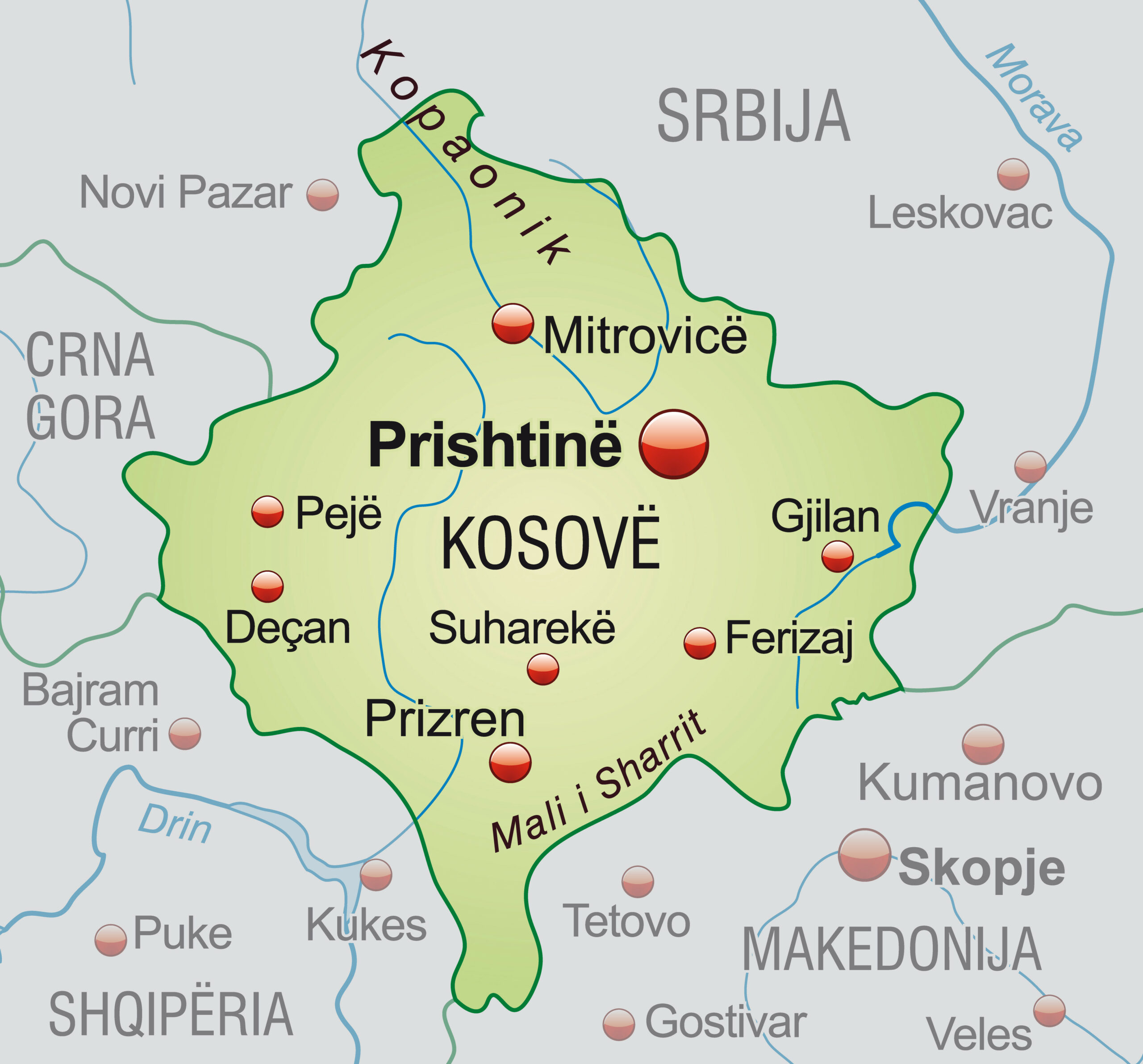Kosovo
Kosovo, a tiny landlocked nation in the western Balkans is comprised primarily of ethnic Albanians. It’s famed for its natural resources and favorable agricultural conditions. Pristina, the nation’s largest city and capital, is centrally located, making it the financial, economic, commercial, and political center.
The history of Kosovo is intertwined with the histories of several empires who occupied the area throughout the centuries including the Roman, Byzantine, and Ottoman. Kosovo was incorporated into communist Yugoslavia in 1918, but following the dissolution of Yugoslavia, it remained part of Serbia until 1998 when Kosovo waged a war for independence. During the conflict, approximately one million Kosovars were forced out of their homeland, hundreds of thousands were internally displaced, and more than 10,000 were killed. After NATO intervened, Kosovo received UNMIK protection and subsequently gained independence in 2008, making it the second youngest nation in the world today. This emergent nation faces enormous economic and political difficulties as it rebuilds post-war.
The majority of Kosovars are historic Muslims dating back to Ottoman rule, but there are small Christian Orthodox and Catholic minorities. Evangelicals represent 0.21% of the total population.
More Information About Kosovo
- Population: 1.89 million
- Official Language: Albanian and Serbian
- State of the Economy: Kosovo’s economy plummeted after the war of independence, making it one of the poorest countries of Europe. It is slowly being rebuilt, but there is huge discontent with government and 62% unemployment among youth. Kosovo applied to become a member of the EU but has not yet been accepted due to complications with Serbia.
- Religion: 95.6% Muslim, 2.2% Catholic, 1.4% Serbian Orthodox, 0.06% other (including Protestants)
- State of the Church: Before the devastating war in 1998, there were only six evangelical churches and 150 believers. After the war, there was an influx of missionaries who planted new churches, which resulted in the growth of the evangelical body to approximately 35 churches and 1,500 believers. Nevertheless, many villages and towns remain without an evangelical presence. Kosovo has experienced a resurgence of Islam with accompanying opposition to the gospel.
In 1999, we opened and led a refugee camp in Albania for displaced Kosovars. Subsequently, we worked in Kosovo doing humanitarian work, establishing a church plant, and helping to train and resource national workers.
Total Population
1,890,000
Population in Unreached
1,748,000 (92.5%)
Largest Religion
Islam (87.5%)
% Christian Adherent
6.8%
% Evangelical
0.21%
Evangelical Annual Growth Rate
0.0%
(Global Rate = 2.6%)
(Source: JoshuaProject.com. For more detailed information, visit https://joshuaproject.net/countries/KV
Note: where more current statistics are known, those are being used in place of Joshua Project.)


